Tags: Venus
Venus Crust Broken? Large Blocks Moving Like Sea Ice Seen on Planet Showing Proof of Geological Activity

Venus, Mars, Moon Conjunction: Will They 'Kiss' Before Parting This Week?
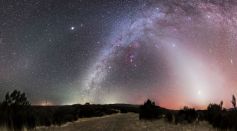
Skywatching Venus, Milky Way: NASA Shares 2 Exciting Tips to Have the Best Glimpse
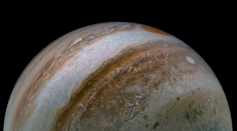
Venus Clouds 'Too Dry' to Support Life; What About Jupiter?

Earthquake Detected Through Flying Balloon; Scientists to Use the Same Instrument to Detect 'Venusquakes'
Venus: Why the Hellish Planet is Exciting Scientists and Astronomers

Full Strawberry Moon, Mars, Venus: Don't Miss These Celestial Events This Month of June!

NASA Spills More Details About Missions to Venus, Earth, Mars, and Moon
NASA Explains What Makes Two Missions to Venus by 2030 Exciting
NASA Selects Two Missions to Visit Venus for the First Time to Unveil Secrets of Earth's Evil Twin
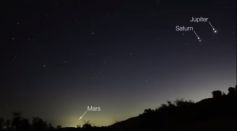
Mercury Ascents Along With Cresent Moon as Brilliant Venus Returns This Week; How to Watch It
Venus Emits Weird Audible Radio Signals as Heard by the NASA Parker Solar Probe [WATCH]
Venus Day Length: Experts Say Earth's Sibling Rotates Every 20 Minutes

Astonishing Photos of Venus Officially Shared By NASA Parker Solar Probe Team
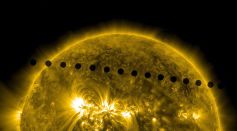
Life on Venus Debunked: Planet Does Not Contain Traces of Phosphine Gas

ESA Shares Stunning New Video Showing Solar Orbiter's View of Mars, Earth and Venus
Solar Orbiter Spacecraft Reaches Nearest Approach to Venus
Venus Became Uninhabitable Due To Climate Change
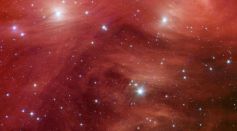
Bright Stars in the East: Mercury and Venus Joins Moon at Dawn
Planet Between Saturn And Uranus Was Kicked Out of The Solar System, Scientists Say
Most Popular

Hellfire Missile Video Reveals MQ-9 Reapers Being Used for Aerial Combat

Is the iPhone Air Eco-Friendly? Environmental Trade-Offs Explained

FDA Approves New Hypertension Notification Feature With Apple's WatchOS 26

Tesla Cybertruck Crashes Anti-ICE Protests in LA, Becomes Unlikely Symbol of Trump Controversy




